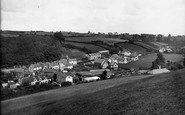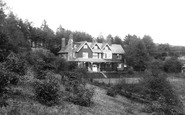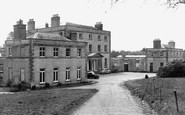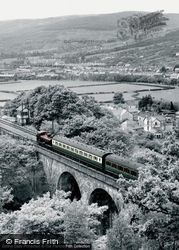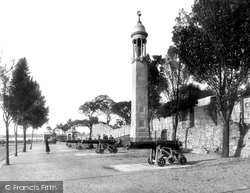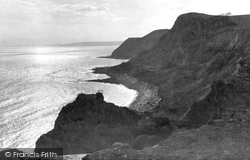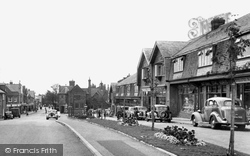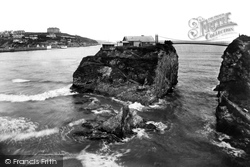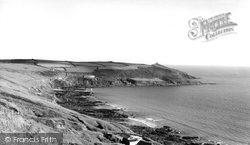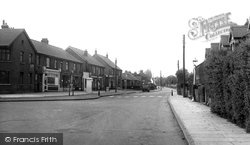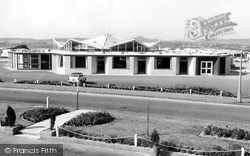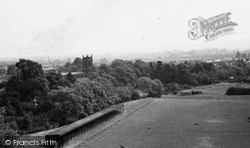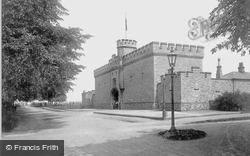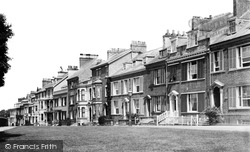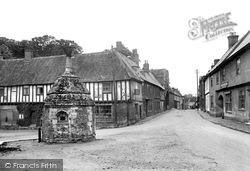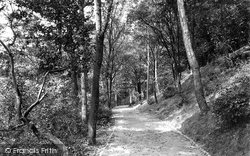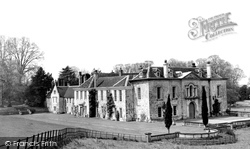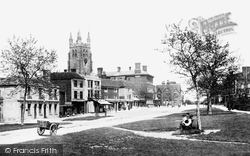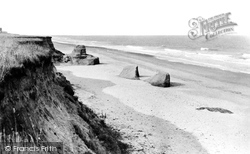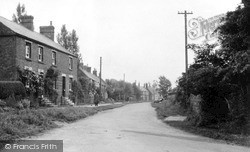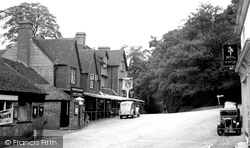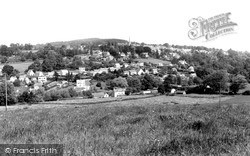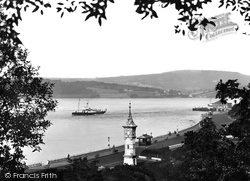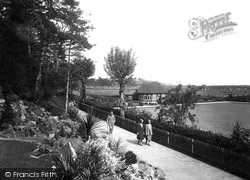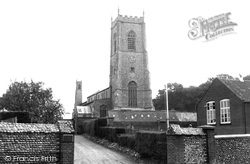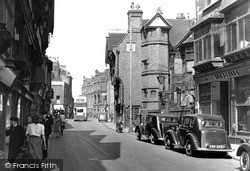Places
Sorry, no places were found that related to your search.
Photos
2 photos found. Showing results 21 to 2.
Maps
Sorry, no maps were found that related to your search.
Books
Sorry, no books were found that related to your search.
Memories
94 memories found. Showing results 11 to 20.
Childhood Memories
In August 1939 I came to Roadwater from Kingston, Surrey to stay with my grandparents for my summer school holidays. My grandmother's name was Eva Morse and my grandfather's Rupert Morse. At that time they lived in a house ...Read more
A memory of Roadwater in 1930 by
'goldcrest' On The A 287
I was evacuated from Battersea, South London, in 1944 to a large house named 'Goldcrest' on the Hindhead Road not far from Beacon Hill and have some happy memories of that time although as it was wartime everything seemed ...Read more
A memory of Hindhead in 1944 by
Beacon Hill
I lived in Beacon Hill Road at the Police House in the 1950s and played cricket for Hindhead C.C when I was about 14, such great days. I was also reserve organist at Beacon Hill Congregational Church where Miss Katherine Osborne ...Read more
A memory of Hindhead by
School Days
I lived at 27 Radnor Street, last but one tennament to be flattened. My first year of school was at the "new high school", on Bouquanaran; 10 class rooms open, we had to scramble among the bricks to get to class. Then I went to ...Read more
A memory of Clydebank in 1940 by
The Wrekin
In the 50s/60s we would go and spend the day on the Wrekin. We would cycle from our home on Charlton Hill and leave our bikes at the Forest Glen (no need to lock them up) and make our way up the first part of the climb which was ...Read more
A memory of Donnington by
The Beacons Cemaes Bay
I moved to Cemaes to a house called the Beacons; the views from the front room were fantastic - on a clear day you could see the Isle of Man, and in winter the waves would hit the windows and would be caked in salt. ...Read more
A memory of Cemaes Bay in 1972 by
My Golden Years At Stokes Bay
I was born in Gosport in 1929, my father was a long serving seaman in the Royal Navy and so our family life was all things navy - so Stokes Bay was a big part of our lives. I had three elder sisters who were ...Read more
A memory of Stokes Bay by
Happy Holidays.
I have many happy memories of holidays spent at Dhoon from about 1934 to 1940, when I was under ten years old. My parents had visited the Isle of man for many years before I was born and had discovered Dhoon on those visits. We used to ...Read more
A memory of Dhoon by
Shute After The War
My sister and I were at Shute between 1949 and 1952, and I hardly recognise some of the memories here! For us it was a happy place, where we rode ponies and made dens in the woods. We learned about wildflowers - Mrs. Clapp was ...Read more
A memory of Shute by
1960’s
I remember Stanford Dingley when the cottages existed opposite Dumbledore on Jennets hill, they used the water pump opposite. A fire destroyed the semi-detached house opposite where Casey Court now stands. There was a post office ...Read more
A memory of Stanford Dingley
Captions
136 captions found. Showing results 25 to 48.
This superb view of Glyn Neath shows both the railway in the foreground, complete with steam engine, and the rolling hills beyond.
The Pilgrim Fathers' Monument is built of Portland stone and rises 50 feet above the ground.
The sun sets over Lyme Bay, silhouetting the cliffs.
It is thought that the name Telegraph Road comes from a 19th-century telegraph station that stood on top of the Beacons, to the west of the road; but if that was the case, it was not part of the telegraph
A house was built here and connected to the mainland by a suspension footbridge in the early 20th century.
The small square chapel on Rame Head is that of St Michael, built in the 14th century; it originally housed a beacon to guide ships into Plymouth Sound just round the corner.
Corringham was a small, remote village before the coming of the oil-refineries: the petrol-station sign in the distance says it all. This parade was built in 1929.
The Palladium Bar was opened when the site was first developed for leisure. The zig-zag roof now covers a swimming pool, and the displaced bar is in a new part of the extended building.
The Pilgrim Fathers' Monument is built of Portland stone and rises 50 feet above the ground.
Towards the north-west lies the mound of Beacon Hill. The earliest origins of Loughborough may be here.
Across the Witham, Avenue Road becomes Beacon Lane and passes the old barracks of 1858 and 1872 of the Royal South Lincolnshire Militia, now occupied by an auctioneers and valuers.
As Exmouth developed, residential streets such as the mostly Georgian Beacon Terrace were built on higher ground overlooking the sea.
This old dome-shaped weather-beaten pump dates back to medieval times, and is situated at an important junction in the middle of this historic town.
The Plantation and Madeira Walk below The Beacon and Louisa Terrace are a delightful stretch of green wooded shelter on hot days.
This is a splendid picture of the magnificent Georgian facade of Firle Place, which disguises the original Tudor structure.
The 15th-century grey tower of St Mildred's Church, with its bold crocketed pinnacles, dominates the centre of this small town, which stands 322 feet above sea level; it was formerly used as a beacon
Such was the concern in 1791, that two beacons were erected, illuminated by lanterns holding many candles; one became the lighthouse, and another stood about 400 yards north of Cart Gap.
At the Melton sign the A606 does a double- bend.
Many of the present buildings in Burley are Victorian and 20th-century, but the village itself is an ancient Forest settlement.
Four miles from Stroud, picturesque Painswick titles itself 'Queen of the Cotswolds'.
The river Exe from Beacon Hill. This fashionable area was home to Lady Nelson after her estrangement from the Admiral. By the time this picture was taken, the holiday business was well established.
In olden days a beacon fire was lit on the headland to alert the countryside to threats of raids and possible invasion.
The small tower at the far end of the church served as a mark for sailors heading for the port: it used to carry a beacon at night.
The trams have given way to buses and the horse-drawn vehicles to motorcars, and hatless heads are now commonplace.
Places (0)
Photos (2)
Memories (94)
Books (0)
Maps (0)

